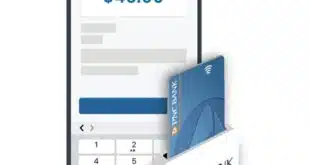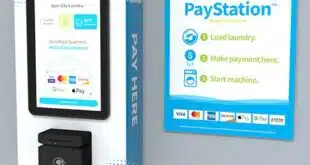PayPal, the online payment service of Internet auctioneer eBay Inc., has taken two more steps in its effort to diversify its transaction base beyond the eBay fold. This week it announced it would use IP Commerce Inc. technology to enable small businesses to easily send invoices and receive payment through PayPal. That new service followed word that PayPal would provide new incentives to merchant acquirers, processors, and others that join its PayPal Partner program and offer PayPal's Express Checkout service to their customers. The Partner program rolls up some new and old features under one umbrella, according to Gene Alston, business development director at San Jose, Calif.-based PayPal. PayPal has offered processors $1,000 for each merchant they bring to Express Checkout for about a year, “but we really didn't talk about it,” he says. The new Partner program continues that incentive, and it also adds what PayPal dubs an “integration bonus.” Alston wouldn't disclose how much a partner would be paid upon certification of its integration process by PayPal, but any payment would depend on the “quality of integration,” which refers to the ease and attractiveness a merchant brings to PayPal Express Checkout for its customers. PayPal also is offering technical support, integration best-practices information, and access to cobranded marketing materials to partners. Initial members of the Partners club include authentication provider CardinalCommerce Corp., Chase Paymentech Solutions LLC, the leading e-commerce merchant acquirer, eBay's ProStores Internet store set-up service, and Zen Ventures LLC's Zen Cart, an open-source online shopping cart. PayPal says it has other unidentified partners. PayPal, which claims 10 million business customers, clearly is upping the ante in a tough Internet payments market that now includes Google Inc.'s Google Checkout. “A primary motivator is the value PayPal offers to the merchant community,” Alston says. “We needed to broaden our partners. If you're in retail, PayPal's objective is to be ubiquitous across all those Web sites.” In the first quarter, PayPal processed $4.4 billion in merchant services volume, up 51% from a year earlier. This accounted for 39% of PayPal's total payment volume. Meanwhile, PayPal sees the new services available through Denver-based software developer IP Commerce as simplifying some of the cumbersome tasks businesses deal with every day, especially invoicing, while at the same time driving traffic to PayPal. PayPal is a member of IP Commerce's PASS (for Payments as a Secure Service) Consortium, a group of companies that are developing open payment applications for Microsoft Corp.'s new Windows Vista operating system using IP Commerce's IP Payments Framework (Digital Transactions News, Sept. 22, 2006). Windows Vista includes a so-called sidebar on the desktop that has “gadgets,” graphical images linking to all manner of standard or custom-made software applications. Unlike typical icons, gadgets are not merely tools to open an application. They instead provide a direct link between the consortium member and the Vista desktop. With the invoice application in the PASS Commerce Center, a PayPal-accepting business user can quickly generate an e-mail invoice to bill customers. The invoice includes an embedded, encrypted payment button, allowing small businesses to accept payment through their PayPal accounts, according to an IP Commerce release. The invoicing system pulls in the merchant's customer-contact information, stock-keeping unit (SKU) data about products, and other information, according to Alston. “The usability of it is awesome,” he says. “It's very data-driven.” Another feature, called Sales Ticker, allows PayPal small-business users to add an active desktop icon that receives and alerts them to incoming PayPal payments in real-time, without the need to log into their PayPal accounts. The user can view, store, and manipulate the accompanying data in various Microsoft applications.
Check Also
Friction Hobbles Toll Payments, a Study Finds, While PayRange Brings Cashless Payments to More Laundromats
Friction when attempting to pay a past-due road toll online is the leading reason consumers …




